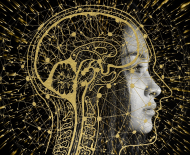Posted by Managementguru in Artificial Intelligence, Business Management, Change management, Human Resource, Productivity, Training & Development
on Feb 15th, 2020 | 0 comments

How Artificial Intelligence Can Help Increase Employee Engagement Employee engagement is crucial to the success of your business; without engaged employees, your business will have a tough time expanding. According to Gallup’s State of the Global Workplace report, 85% of employees are actively disengaged in their workplaces. Disengaged employees are less effective at their work, and can contribute to a drop in company revenue over time. Here are some ways that Artificial Intelligence (AI) can help keep your workforce engaged and working at their full potential. Robotic Process Automation Robotic Process Automation, or RPA, is a great tool to remove repetitive tasks from your employees every-day routine. RPA harnesses the power of Artificial Intelligence by using digital software robots, or “bots”, to automate existing business processes. The Artificial Intelligence aspect of the bots enables them to work with “unstructured data” without hitting snags or complications. RPA can be applied to almost every industry and can help you become more efficient and save money in the long run. RPA has the power to increase employee engagement in a number of ways, the first being an increase in their mood. An IBM study on “The Financial Impact of a Positive Employee Experience” shows that “organizations that score in the top 25 percent on employee experience report nearly three times the return on assets compared to organization in the bottom quartile.” Making sure that your employees are happy and engaged can prove helpful for your bottom line. Removing repetitive tasks can also lead to an increase in creativity for your employees as they are being tasked with more challenging and thought-provoking work. Additionally, removing the monotonous work with RPA can provide more opportunities for upward mobility for workers, as more jobs now requiring a higher level of skill and insight. Picture Courtesy: Zibtek While a business is more than the sum of its parts, the truth is that workflows can either give a business the edge or keep it from growing. Here is a resourceful guide from Quandary Consulting Group to process improvement that covers the subject in full. Read on: Process Improvement: Cut Waste and Improve Business Efficiency Professional Development & Predictive Behavior Artificial Intelligence shows great promise for being able to help in the personal development of current employees. Using AI, companies are able to create personalized training programs for employees, which can align the material with different employees’ learning patterns and behaviors. Using this, employers can then target the specific needs of employees, instead of having to create blanket training that can often be repetitive to many. If a training program is largely computer-based, then AI can actually serve as the instructor for the course, creating more time for other training. AI technology has proven useful in its predictive behavior aspect and can be used in businesses to gain detailed information on why employees leave the company, enabling them to take preventive measures in the future. Picture Courtesy: Docebo Artificial Intelligence helps human resources develop more personalized feedback on an employee’s work, and more personal responses to any issues they might be having. This helps employees feel more valued at a company and can increase their engagement. Employee training programs are crucial for keeping an employee engaged in their work. If an employee is confused about any part of their task, and feels unable to ask for assistance, they will be less engaged in their job. In addition, you can use AI to help train employees on newer aspects of the company to keep furthering their development and open up new opportunities for them. AI can help identify factors that push employees to leave a company, allowing employers to...


